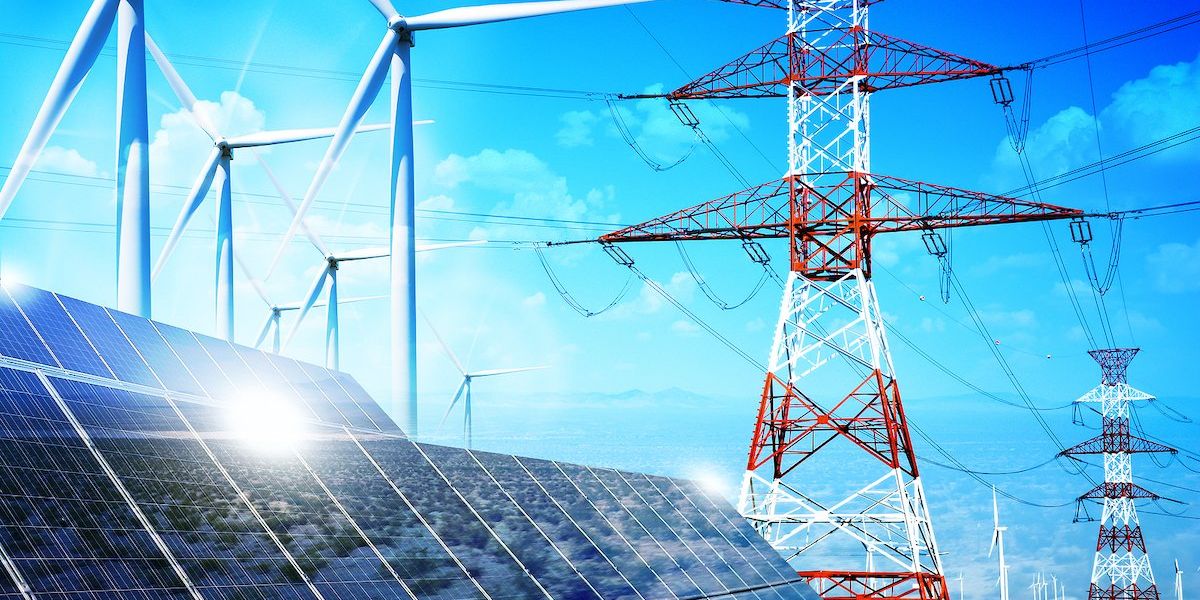recycling
Wind turbine blades could soon be recyclable
Researchers have developed a new plant-based material for wind turbine blades that could help address the growing waste problem caused by old turbines.
In short:
- Wind turbine blades are difficult to recycle and often end up in landfills, contributing to environmental waste.
- A new plant-based material can be recycled and potentially used as a direct replacement in manufacturing without changing existing production processes.
- Economic pressures and higher production costs could hinder the widespread adoption of this new recyclable material.
Key quote:
It’s "designed to be a drop-in replacement. Manufacturers should be able to just take it and use it.”
— Robynne Murray, researcher at the National Renewable Energy Laboratory
Why this matters:
As wind power grows, the disposal of old turbine blades could contribute to significant landfill waste. A recyclable alternative would reduce this environmental burden and support the transition to cleaner energy sources.
Rechargeable gadgets may not always be practical
Lithium-ion batteries are now found in many everyday gadgets, but they are not always the best choice for reliability and environmental impact.
In short:
- Lithium-ion batteries are widespread, but they are not ideal for devices needed at specific moments, such as flashlights or TV remotes, due to their recharge time.
- While lithium-ion batteries offer improved performance and design flexibility, they lead to ecological challenges because they are not easy to recycle and often end up in landfills.
- Despite the environmental concerns, consumers often choose rechargeable gadgets due to misconceptions about their convenience and eco-friendliness.
Key quote:
“Lithium-ion batteries have not been designed for end of life.”
— Jim Puckett, executive director of Basel Action Network
Why this matters:
The reliance on lithium-ion batteries for everyday devices creates unnecessary waste and ecological harm due to the challenges of recycling these batteries. Reassessing the need for rechargeable batteries in certain gadgets could lead to more sustainable consumer habits and better product reliability.
Copper recycling increases as demand soars
Copper manufacturers in Montreal are boosting recycling efforts to meet rising demand.
In short:
- Nexans mill in Montreal now produces copper rods with 14% recycled metal, aiming for 20%.
- The shift towards electrification to reduce greenhouse gases is driving up copper demand, projected to nearly double by 2035.
- Recycling copper reduces the need for new mining, lessening environmental impacts.
Key quote:
“We say to our customers: Your waste of today, your scrap of today is your energy of tomorrow, so bring back your scrap.”
— Christopher Guérin, CEO of Nexans
Why this matters:
Mining copper is an energy-intensive process that often results in substantial carbon emissions and environmental degradation. By recycling copper, manufacturers can diminish their reliance on mining, cutting down on greenhouse gas emissions and preserving natural landscapes.
AI tool aims to curb plastic waste in food industry
A new machine learning tool developed at U.C. Santa Barbara aims to guide policymakers in reducing plastic waste through a variety of interventions.
In short:
- Representatives from more than 150 countries are negotiating a treaty to address the plastic crisis, with final details expected later this year.
- The Global Plastics AI Policy Tool assesses the impact of 11 policy interventions on reducing plastic waste through 2050, predicting significant reductions with measures like minimum recycled content mandates and capping virgin plastic production.
- Expert Nivedita Biyani emphasizes the need for systemic changes in waste management, comparing current practices to outdated methods from the 1950s.
Key quote:
"Negotiators need to recognize that plastic pollution is an accelerating global crisis that cannot be solved with fragmented national approaches."
— Eirik Lindebjerg, WWF International’s global plastics policy lead
Why this matters:
Plastic pollution is a growing global crisis affecting both environmental and human health. Effective policies, informed by AI tools, are important for achieving significant reductions in plastic waste, especially in sectors like food packaging. Read more: Investigation: PFAS on our shelves and in our bodies.
Colorado Gov. Polis vetoes bill ending state incentives for certain recycling techniques
Governor Jared Polis vetoed a bill that would have stopped state incentives for pyrolysis and gasification recycling projects in Colorado.
In short:
- Governor Polis rejected a bill that aimed to cut state support for advanced recycling techniques like pyrolysis and gasification.
- Proponents of the bill argue these methods are environmentally harmful and serve as a distraction from reducing plastic use.
- The bill's supporters are disappointed, believing state funds should support projects that align with climate and environmental justice goals.
Key quote:
“We should not waste taxpayer dollars incentivizing plastics-to-fuel technology that increases pollution, doesn't recycle materials and isn't economical.”
— Suzanne Jones, executive director of Eco-Cycle
Why this matters:
Pyrolysis and gasification processes are controversial, as they consume significant energy and emit pollutants. Governor Polis' decision signals a cautious endorsement of innovative recycling technologies while acknowledging the complexities and challenges involved in their implementation.
Learn more about chemical recycling.
Discard these common recycling myths
Despite recycling being around for decades, many misconceptions persist about what can and cannot be recycled.
In short:
- Pizza boxes, even if stained with grease, are recyclable according to the Environmental Protection Agency and should be placed in the recycling bin after removing food scraps and flattening.
- Not all paper is recyclable. Coated papers, such as glittery gift wrap and thermal paper receipts, often cannot be processed by paper mills due to their chemical coatings.
- Recyclables don't need to be perfectly clean. A basic rinse to remove major food particles is sufficient, and excessive washing wastes water and energy.
Key quote:
“Grease and cheese in an amount typically found on pizza boxes are not an issue for the recycling process.”
— American Forest and Paper Association
Why this matters:
Clarifying recycling myths helps reduce contamination in recycling streams, ensuring that more materials are properly recycled and reducing the environmental impact. Read more: How BPA and its evil cousins dodge meaningful regulation.
California close to wrapping investigation on Exxon's role in plastic pollution
California's Attorney General announced an impending decision on potential legal actions against Exxon Mobil Corp over its role in global plastic pollution.
In short:
- The investigation, started in 2022, examines the oil and petrochemical industry's contributions to plastic waste and misinformation about recycling.
- Exxon, facing scrutiny for misleading public claims about plastic recyclability, is promoting the contentious chemical recycling, also known as advanced recycling.
- Despite ongoing projects, criticisms point to significant delays and failures in Exxon's recycling advancements.
Key quote:
"We are soon going to be ready to get to a decision based on all of our investigations in the coming weeks."
— Rob Bonta, California Attorney General.
Why this matters:
Many consumers believe that recycling their plastic waste sufficiently addresses the problem, but the reality is that a significant portion of plastic is not recyclable, and existing recycling systems capture only a small fraction of the total plastic waste. Most plastic accumulates in landfills, oceans and other ecosystems, where it can take hundreds of years to degrade, releasing harmful chemicals and microplastics that can be ingested by wildlife and enter the human food chain.
Countries are currently meeting in Ottawa to move forward on a historic plastic pollution treaty.



















